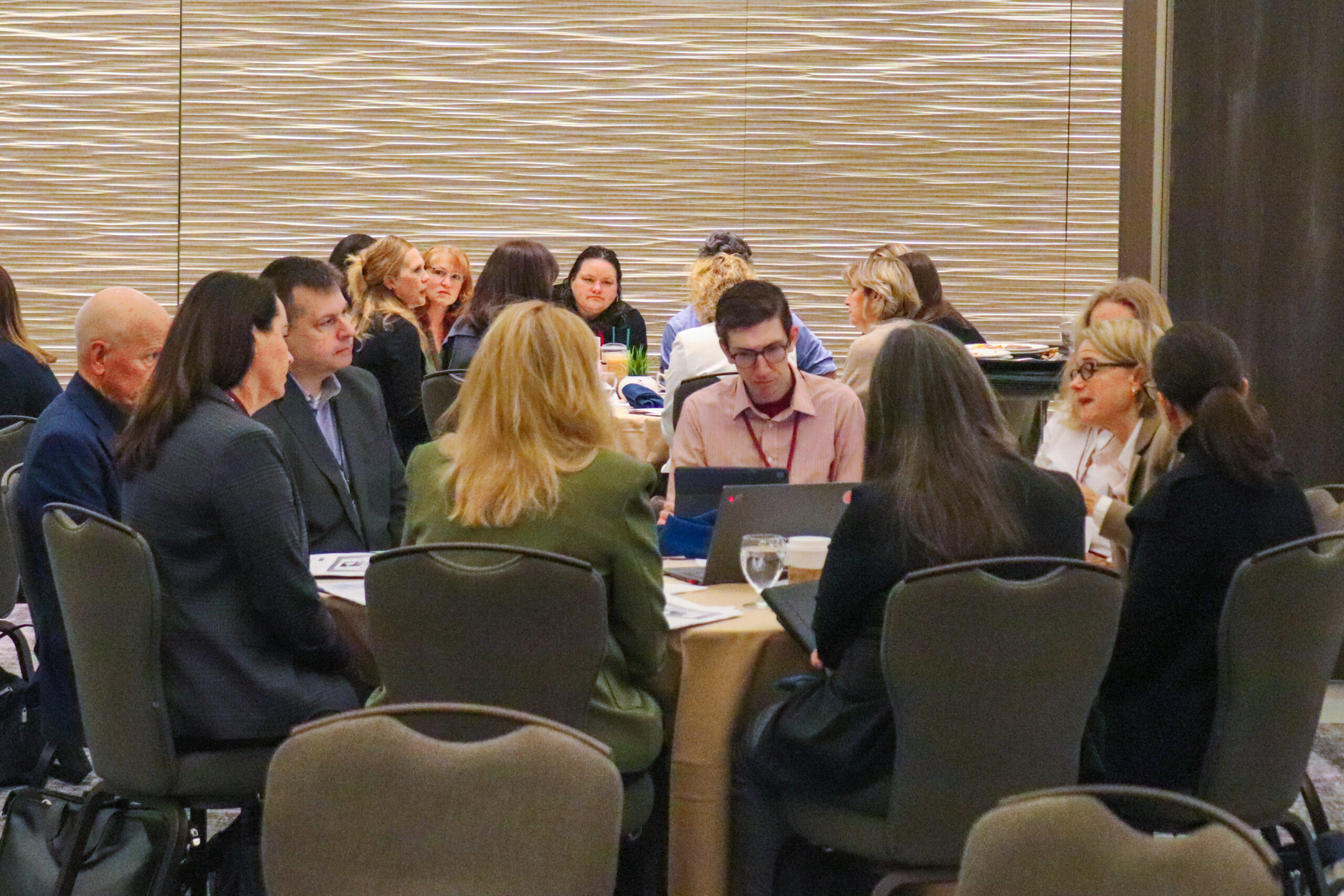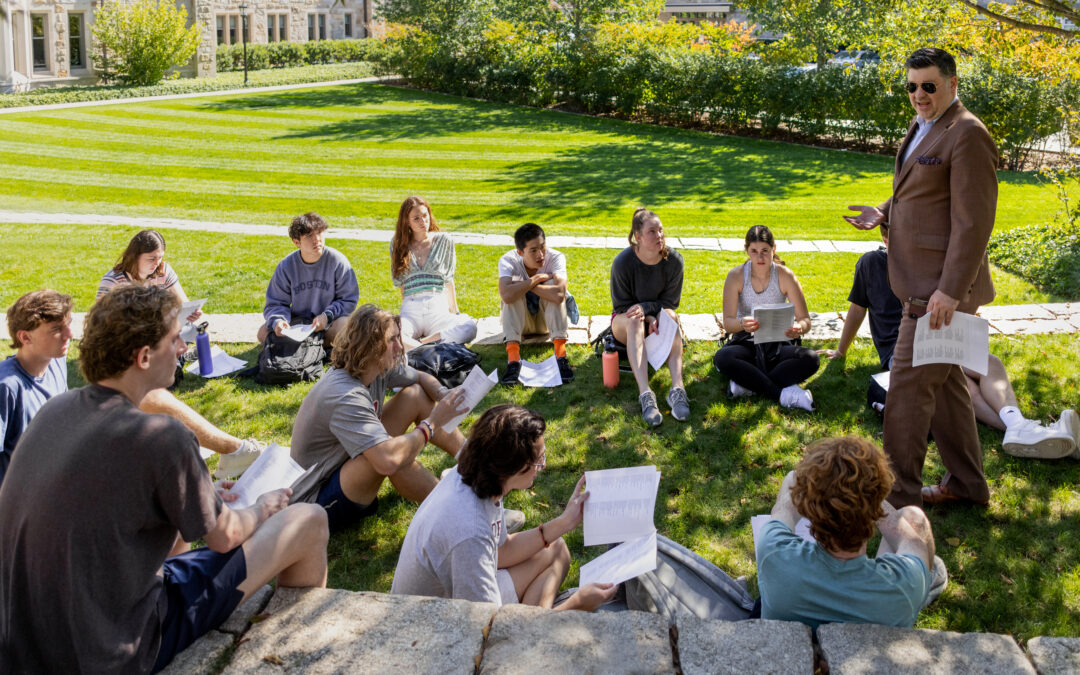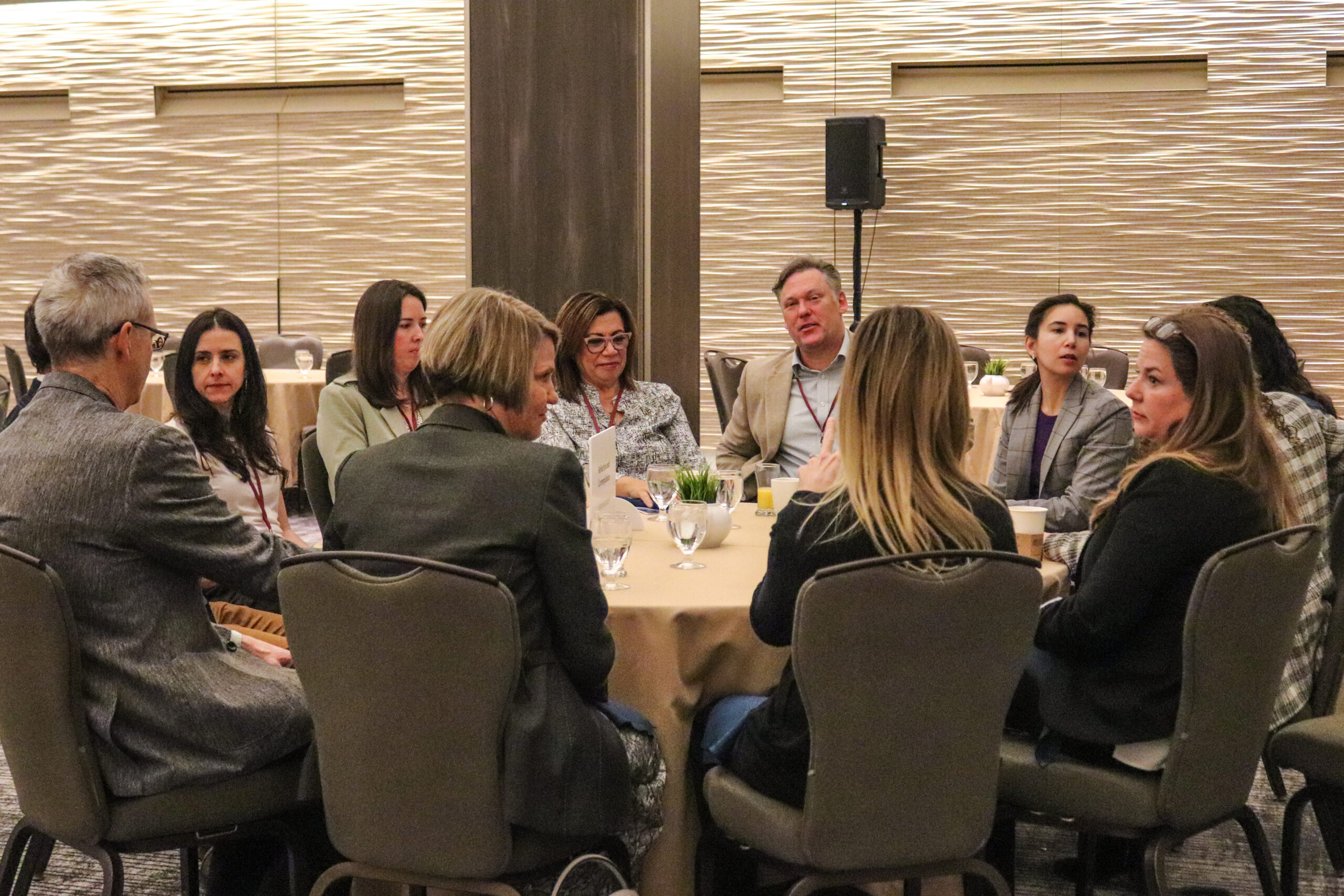
by Samantha Deane | Mar 27, 2024
As we engage in formative character education at diverse colleges and universities, we need to recognize that the contexts of implementation are both iterative and precarious. To better understand how to steward projects and programs to integrate formative character education into a higher education setting, this group studies the cycles of implementation alongside the challenges and success at diverse institutions.
Grappling with how the whole person can flourish in higher education spaces, and what outcomes this may have on the educational system as a whole requires a keen eye on the cycle of our initiatives.
Questions to be addressed:
-
Is there a universal cycle of implementation of a character education initiative? What are the mile markers?
- Are there distinct challenges or affordances of doing this work in certain contexts? What are these challenges and affordances and which contexts present which hurdles?
-
How can we engage in whole-person education at colleges and universities?
-
Why is engaging with the whole person an important goal for higher education?

by Samantha Deane | Mar 27, 2024
The search is on for pedagogies that promote holistic, formative education for human flourishing. Both novice and experienced educators are designing learning environments to advance character and human flourishing, but too often do so in isolation. The result is a lack of collective knowledge about curated methods and practices of formative character education that work. Join us in this community of pedagogical practice.
How does the research on virtue, character, formative, holistic, and civic education translate into practice? What does it look like in the classroom when done well? What can we do to bridge the theory and practice divide in formative character education? What does it mean for pedagogy to work? What can we learn from one another as we implement and share methods and practices of formative character education? How can we collect and disseminate shared knowledge about pedagogy design for formative character education while remaining mindful of the diverse contexts that contour our practice?
Facilitators: Lori Doyle (lori.doyle@cui.edu) and Ashley Ashley Betkowski (Ashley.Betkowski@gcu.edu)

by Boston WebGroup | Jan 3, 2024
The Reflection and Contemplation working group meets to study the affordances and challenges of reflection and contemplation for formative character education.
The importance of reflection and dialogue is well-established in the literature on adult learning. Jarvis (1987, 2001) defines reflective learning as the practice of planning, monitoring, and reflecting upon experiences. Brookfield (1995, 2000) points to critical reflection as a cardinal function of adult education. Freire (1970), Daloz (1999), Mezirow (2000), and Blum-DeStefano (2018) all stress the importance of dialogue, of collegial conversation, in sparking reflective, transformative learning.
At the same time, there is the risk that reflective writing and dialogue will become just one more “thing to do” on the list of a busy educational leader. And there may be some forms of reflection—or perhaps here the word contemplation suggests an important difference—that require not active dialogue but some degree of solitude, silence, and stillness. The great critic of our modern, instrumentalist culture of overwork, Josef Pieper (1998), reminds us of the Medieval distinction between ratio and intellectus. “Ratio,” Pieper (p. 11) writes “is the power of discursive thought, of searching and researching, abstracting, refining, and concluding [cf. Latin dis-currere, ‘to run to and fro’].” In intellectus, by contrast, the mind engages in a still and receptive “listening-in to the being of things” (Pieper, p. 11).
This working group is an opportunity to explore the nature and role of reflection in leadership education.
Questions we address in our monthly meetings and on-going book project
-
What are the differences between different forms of reflection?
-
Is reflection-in-action enough or is there a need to “slow down” and “step back”?
-
How do contemplative practices contribute to our formation?
-
How do dialogical interaction and inwardness both contribute to self-knowledge? Is contemplation individualistic and isolating? How might contemplative knowing be supported by and supportive of community?
-
What experiences could inspire leaders to cultivate contemplative forms of knowing? And how do we support leaders to make time for reflective practice?
-
When is a problem-solving mode the correct response to a difficult situation and when is it an expression of a need for distraction? What do we do when stilling the mind produces not an openness to reality but a flood of regrets and obsessive worries?
Facilitator: Scott Parsons, Texas Tech University (scott.parsons@ttu.edu) and Samantha Deane, Boston College (samantha.deane@bc.edu)




